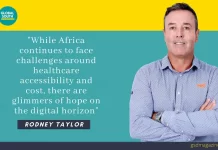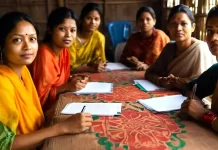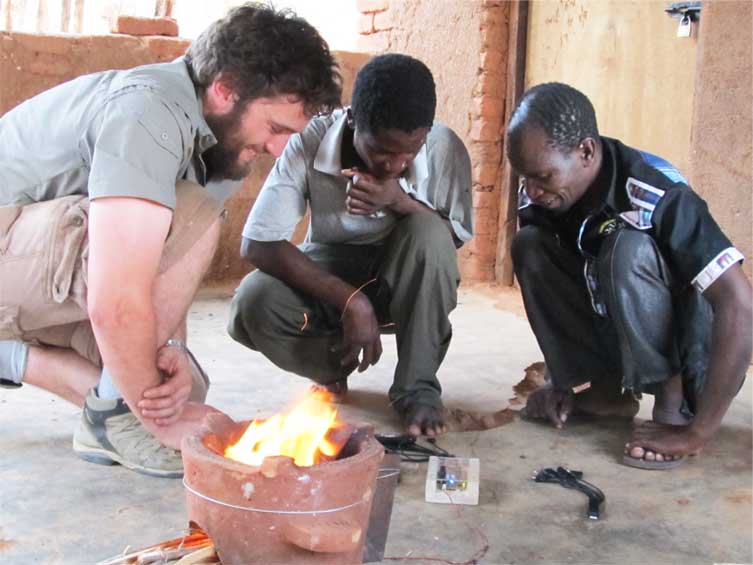 By Erin Wiedenman
By Erin Wiedenman
Climate Change does not affect all nations equally. It has and will continue to have a greater impact on developing nations. Since the current administration in the U.S. has denied climate change, NGOs and non-profits from the United States must place a greater focus on funding climate change adaptation projects.
While it is certainly clear that as temperatures begin to rise across the globe we will all be affected in some way, it has become increasingly clear that climate change will not affect everyone equally, and that developing countries will be hit the hardest. In order to begin changing this inequity it will be necessary for developed nations, especially the United States, to provide support for climate change adaptation projects. This is easier said than done though, as the new administration in the U.S. has made the provision of financial support for climate change in developing countries more uncertain. With less government funds available for climate change adaptation, there is now an urgent need for U.S. citizens and NGOs to step up and help provide that support themselves.
International aid often produces fierce debate in development, with some believing it should be eliminated altogether, but when it comes to climate change, there should hardly be an argument – the potential consequences of not doing something are dire for everyone in comparison to those of doing something. Although other countries, such as India, have had increases in their emissions as their economies have grown, the United States is still responsible for more cumulative CO2 emissions than any other country. As a nation, we must be held accountable for past emissions that have contributed to the current global warming situation, recognizing that our actions have affected the whole world; emissions don’t stay within a country’s borders.
Climate scientists have begun to map out a grim future for developing countries in the face of climate change. Many developing nations have tropical and subtropical climates that will likely see changes in annual rainfall as temperatures warm. Across South Asia and Africa, these shifts in climate could range from increased short rains, to longer, heavier monsoon seasons, and more powerful hurricanes. These changes have already taken affect, as evidenced by the devastating monsoon floods in India, Bangladesh, and Nepal earlier this year. The long-term effects of new rainfall patterns and increases in the occurrence of natural disasters leaves crops at risk, which, in turn, leaves more people at risk of hunger, in areas where food may already be scarce.
See Also: Climate Change is About Women
It’s not as though wealthy nations have ignored this issue altogether- as part of the Paris Agreement in 2010, developed countries collectively pledged to contribute USD $100 billion per year by 2020 to developing countries to assist with climate change mitigation and adaptation efforts. Currently, as we near the end of 2017, only a small portion of this money has actually been mobilized by the United States. And, sadly, even if this level of aid is achieved, it may not be enough. The United Nations has projected that by 2030, aid for climate adaptation will fall in the range of $140 and $300 billion annually. Although the current pledge to help is admirable, it still places the power in the hands of developed nations, with no real consequences for not meeting the aid goals. Continuing to shirk the financial burden of climate adaptation is unfair, given that the problem was arguably created and exacerbated by the United States throughout decades of industrialization.
However, since the current U.S. administration has pulled out of the Paris Agreement and denied the effect of human actions on climate change, it’s less likely that government funding will be directed towards these issues in our own country, never mind other countries. As such, it is up to U.S. nonprofits and NGOs to focus on climate change adaptation in the developing world, with an emphasis on listening and acting as a liaison between their funding sources in the U.S. and those in need of assistance with adaptation in developing countries. This would involve creating adaptation plans on a smaller scale in developing nations, focusing on the community-level rather than on the national level.
Doing it With a Database
Although the adaptation strategies will need to be context-specific, to ensure each area receives the appropriate interventions required for their circumstances, they could still be modified and applied to multiple contexts through careful analysis and planning. To distribute ideas more effectively and allow for quicker and easier implementation, creating a database of climate change issues along with adaptation strategies that have been successfully implemented, could help communities sort through ideas that may work for them. This potential database could also include other relevant information, such as the timelines and costs and materials needed for completing projects. It could give communities in developing countries the power to design their own solutions for adaptation, with the help of examples that have worked for other communities. Simultaneously, it would resolve the issue of nonprofits and NGOs implementing strategies that may not account for the community’s wants and needs. The U.S. organizations can then use their position of influence in the international community to direct funding towards these adaptation strategies. Implementation plans from the database can be used as a motivating factor for investing in these strategies, as funders will be more inclined to invest in projects that have been proven to work in similar contexts.
See Also: Climate Change Drives Rural-Urban Migration to Dhaka’s Slums
While we wait for adaptation funding, islands are disappearing into the ocean and hurricanes and monsoons are becoming more severe.
Ultimately, providing funding for climate change adaptation is vital right now. Though it may seem easier to assume others will take care of the problem, while we wait for this to happen, islands are disappearing into the ocean and hurricanes and monsoons are becoming more severe. People across the globe, often those who are already in a vulnerable position, are losing their sources of income, their homes, and their lives. Tackling this issue should be a top priority in international development right now, as other types of development projects will be for naught if climate change is not addressed first. This may mean that funding will have to be temporarily diverted from other programs, but there is an immediate need to assist communities in adapting to climate change and fixing the damage that has already been done. Meanwhile, developed countries need to work concurrently to reduce their own CO2 emissions to prevent further damage in the future. As a wealthy nation, the U.S. is in a position of power, with plentiful financial capital and an abundance of organizations that could potentially dedicate time and resources to this issue. It’s essential that we use this position of power to advocate for communities who are struggling, listen to their needs, and then assist with implementing community-driven adaptation projects.
(Wiedenman is a graduate student at University of Minnesota, pursuing Master of Development Practice (MDP) program)










